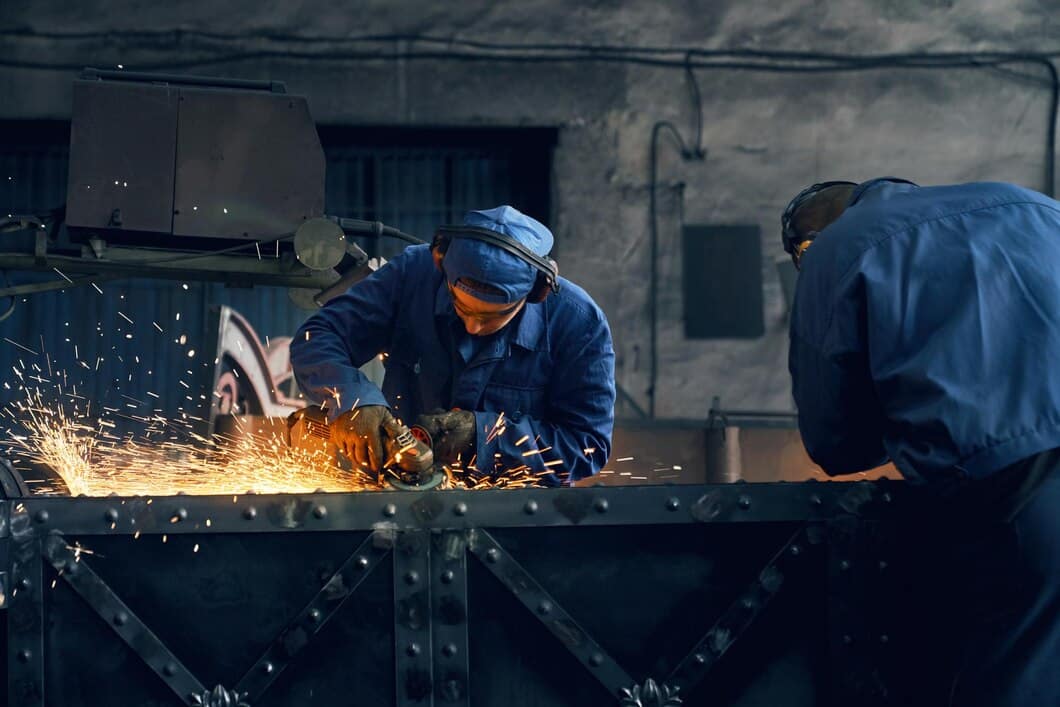Precision in metal fabrication is essential for creating high-quality, durable products. Whether it’s for constructing buildings, manufacturing vehicles, or creating art, precise measurements and cuts are the foundation of successful projects. At TriPoint Fabrication, we understand the importance of accuracy in every step of the process, from initial design to final assembly.
Precision ensures that all parts fit together correctly, reducing the need for adjustments and repairs. It also helps in maximizing material usage, which can save costs and reduce waste. In industries where safety and performance are critical, such as aerospace and automotive, even the smallest error can lead to significant problems. Ensuring every detail is accurate can prevent these issues and lead to better overall outcomes.
In modern metal fabrication, advances in technology have drastically improved our ability to achieve precise results. Tools like laser cutters and CNC machines allow for unparalleled accuracy, making it possible to create complex designs with ease. As you explore the importance of precision in metal fabrication, you’ll gain a deeper understanding of why it’s so crucial and how it can enhance the quality and reliability of your projects.
Why Precision Matters in Metal Fabrication
Precision is crucial in metal fabrication for several reasons. First and foremost, it ensures that all parts fit together perfectly. When parts don’t align accurately, it can lead to structural weaknesses and potential failures. This is particularly critical in industries like aerospace, automotive, and construction, where any mistake can have serious safety implications.
Another important aspect of precision is its impact on efficiency and cost. Accurate measurements and cuts minimize the need for rework, which saves both time and materials. This efficiency not only reduces waste but also leads to cost savings, making the overall process more economical. When materials are used optimally, it also contributes to a more sustainable practice in metal fabrication.
Precision also allows for the creation of complex and intricate designs. Advanced techniques and accurate measurements make it possible to produce components that meet exact specifications. This ability to replicate detailed designs with consistency is essential for high-quality products and can give businesses a competitive edge.
Technologies That Enhance Precision in Metal Fabrication
Modern technology plays a significant role in enhancing precision in metal fabrication. One of the most notable advancements is the use of Computer Numerical Control (CNC) machines. CNC machines follow precise digital instructions to cut, shape, and form metal. This ensures consistent and repeatable results, making it easier to produce complex parts with high accuracy.
Another vital technology is laser cutting. Laser cutters use focused light beams to make precise cuts on metal surfaces. This method is incredibly accurate and can handle both thin and thick materials with ease. Unlike traditional cutting methods, laser cutting provides clean edges and reduces the need for further finishing.
3D modeling software is another tool that enhances precision. By creating digital models, fabricators can visualize and test their designs before actual production begins. This helps in identifying potential issues and making necessary adjustments early in the process. Overall, these technologies work together to ensure that every part is fabricated to the highest standards of accuracy and quality.
Consequences of Poor Precision in Metal Fabrication
Poor precision in metal fabrication can lead to a multitude of issues. One of the most immediate consequences is the compromise of structural integrity. If parts do not fit together as planned, they may not bear the required loads, leading to failures that could be catastrophic in high-stakes environments like skyscrapers or bridges. Misaligned parts can introduce stresses and weak points, resulting in potential safety hazards.
Another consequence is increased costs. Inaccurate fabrication means more time and money spent on rework and adjustments. Material waste also increases, which not only drives up costs but also has environmental implications. Additional labor to fix errors can delay project timelines and lead to dissatisfaction among clients who are counting on timely project completion.
Furthermore, poor precision can tarnish a business’s reputation. Clients expect high-quality work, and consistent inaccuracies can erode trust. A reputation for poor quality can hinder future business opportunities and affect long-term success, making it essential to prioritize precision in every fabrication project.
Tips for Ensuring Precision in Your Metal Fabrication Projects
Ensuring precision in metal fabrication starts with a clear and detailed plan. It’s important to have precise measurements and specifications before beginning any work. Use advanced design software to create accurate models and simulations. This helps in identifying potential issues early and allows for adjustments before actual production starts.
Investing in modern equipment can significantly enhance accuracy. CNC machines and laser cutters provide high levels of precision and repeatability. Regularly maintaining and calibrating these machines ensures they continue to perform at their best. Additionally, employing skilled operators who are trained in the latest techniques can make a substantial difference.
Implementing quality control processes is crucial. Regular inspections and testing at various stages of the project can help catch errors early. Encourage open communication among team members to ensure everyone is on the same page regarding project specifications and expectations. By focusing on these tips, you can enhance the precision of your metal fabrication projects and achieve better outcomes.
Conclusion
Precision is the backbone of successful metal fabrication. It ensures the integrity, safety, and quality of the final product. By utilizing advanced technologies like CNC machines and laser cutters, and by implementing thorough planning and quality control measures, you can achieve the highest levels of accuracy in your projects.
The consequences of poor precision—ranging from structural failures to increased costs—highlight the need to prioritize accuracy at every stage. At TriPoint Fabrication, we specialize in delivering precise metal fabrication services that meet stringent standards. If you’re ready to elevate your metal fabrication projects with top-notch precision, contact TriPoint Fabrication today. Let us help you achieve exceptional results that stand the test of time.


0 Comments